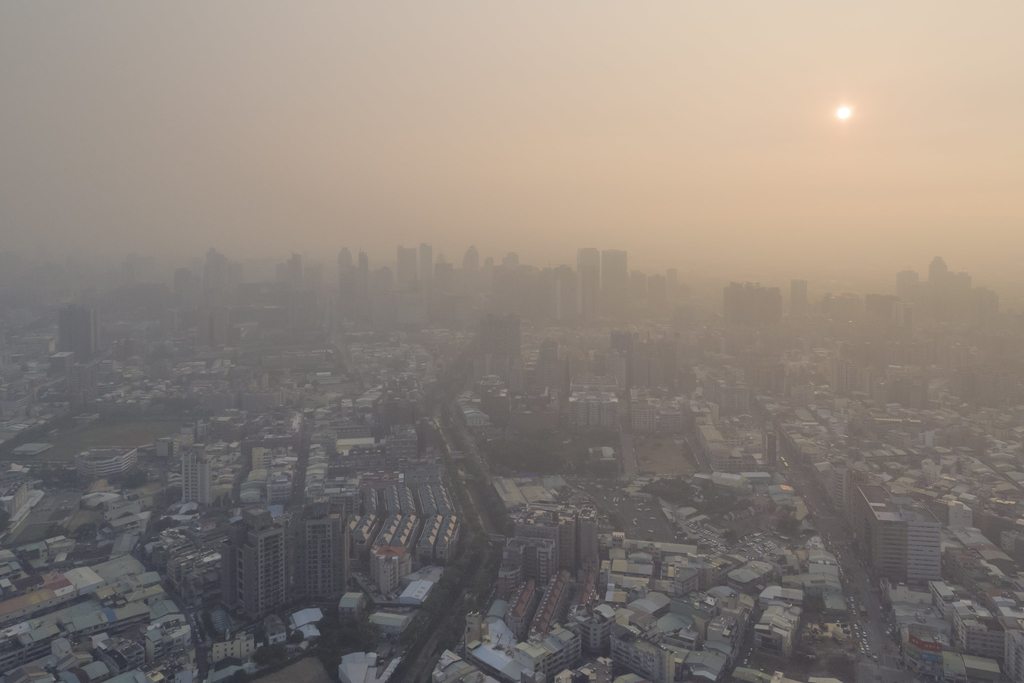Air pollution has been termed ‘a silent public health emergency’, with the Director General of the World Health Organisation (WHO), Dr Tedros Adhanom Ghebreyesus, calling it ‘the new tobacco’. It is an epidemic that is killing seven million people every year, making it a more pressing threat than any other kind of pollution. As well as affecting the majority of the global population, it also impacts on nearly all parts of the body.
—
The WHO estimates that over 90% of the world’s population lives in places where air pollution is above its guidelines. Places most affected are in south and east Asia, with India having nearly half of the top fifty most polluted cities, followed by China with eight and Iran with three.
Types of Air Pollution
The two primary kinds of air pollution are ambient (outdoor) pollution and household (indoor) pollution, the former referring to pollution generated by household combustion of fuels (such as coal, wood or kerosene) using open fires or basic stoves in poorly ventilated spaces. Both kinds of pollution contribute to each other, as air moves between the inside of buildings and out.
Air Pollution Facts
Household air pollution kills 4 million people a year and tends to affect countries in predominantly Africa and Asia, where polluting fuels and technologies are used every day, particularly at home, for cooking, heating and lighting. Its main victims are women and children, who tend to spend more time indoors.
This is a pressing threat for developed nations as well. A study by the British Heart Foundation found that almost 25% of people in the UK exposed to dangerous levels of air pollution, whereby the average levels of PM2.5- a tiny toxic particle that predominantly comes from vehicle emissions, wood burning and construction- exceeds guidelines set by the WHO.
Air Pollution Effects
Short-term exposure to dirty air is linked to conditions such as heart failure, pneumonia and heart attacks, as well as illnesses like Parkinson’s disease, septicemia, and urinary tract infections, according to a research study.
The effects of this pollution are felt in every part of the body, down to the cellular level. A research study conducted by scientists from the Forum of International Respiratory Societies confirms that ‘ultrafine particles pass through the lungs, are readily picked up by cells, and are carried via the bloodstream to expose virtually all cells in the body’.
These findings are also illustrated in an interactive article that shows how it causes different lung and heart diseases, dementia and other brain diseases, hives and brittle bones, as well as reduced fertility and miscarriages.
The damage that air pollution causes the human body is due to systemic inflammation, whereby the body’s immune cells release enzymes and acids to kill pollution particles, believing them to be bacteria. These inflammatory proteins spread around the body, affecting nearly every organ in the body.
Another study, published in Environmental Health Perspectives, also links toxic air to depression, anxiety, bipolar disorder, psychosis and increased risk of suicide. Isobel Braithwaite, who led the research, observes that toxic air ‘can reach the brain via both the bloodstream and the nose. Air pollution has been implicated in increased brain inflammation, damage to nerve cells and changes in stress hormone production, which have been linked to poor mental health’.
The research suggests that if global air pollution levels are reduced to the EU’s (European Union) legal limits, millions of people could have improved mental health.
Despite this harsh picture, there are initiatives attempting to tackle the mammoth task of reducing this pollution. BreatheLife, led by the WHO, the Climate and Clean Air Coalition, and the UN Environment Programme, is a global campaign advocating for clean air. It is ‘mobilising communities to reduce the impact of air pollution, currently reaching around 97 million people’.
Dean Roosegaarde and his studio, in partnership with the University of Monterray, created billboards erected in Monterray, Mexico which have been coated with a specialised resin that attracts nearby air pollutants and converts them into oxygen when exposed to direct sunlight. Functioning for up to five years, each billboard generates the same amount of clean air as 30 trees every 6 hours.
The impact of air pollution has far-reaching consequences and despite innovative solutions to curb the problem, it is essential that measures to reduce air pollution are implemented at a policy level if the planet is to have any chance of recovering. As Dr Ghebreyesus says: “No one, rich or poor, can escape air pollution.”
To combat air pollution rates, governments should gradually implement green technologies in public areas and infrastructure. Tax incentives should be implemented that discourage high consumer expenditures and focus instead on companies optimising the efficiency of their products over their lifespans and reducing waste.. The strength and appeal of the sustainable technology industry is that it is in its relative infancy, meaning that there are no companies with oligopolistic control of the market yet. This means that innovative start-ups continue to emerge and dominate most aspects of the market, driving up competition and lowering costs. If there is the political will to take a relative risk and invest in these competitively priced companies and their technologies, expenses will only lower as the market grows. The necessary political will can only be spurred by an active and mobilised citizenry, which can hold elected individuals accountable.
Featured image by: 君勇 林

















